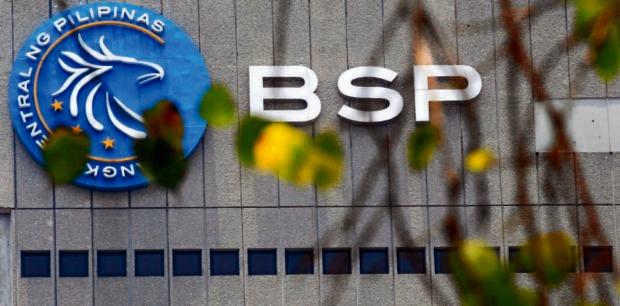Market braces for more BSP rate hikes of up to 175bps
MANILA, Philippines—Investment banks and economic think tanks are betting on more interest rate hikes by the Bangko Sentral ng Pilipinas (BSP) this year and possibly spilling over to next year as the Philippines balances economic recovery and high inflation.
For the part of the central bank, Governor Benjamin Diokno told an online seminar organized by Tokyo-based think tank Asian Development Bank Institute (ADBI) on Friday (May 20) that “the timing and conditions of the BSP’s exit strategy will be guided by the inflation and growth outlook over the medium term, the state of public health, and domestic and global risks to the economy.”
Diokno was partly referring to the interest rate hikes, or normalization, which started on Thursday (May 19) when the Monetary Board hiked key interest rates by 25 basis points (bps), upping the policy rate to 2.25 percent — the first increase since November 2018. At the onset of the COVID-19 pandemic, the BSP cut rates to keep the economy afloat, up to a record-low 2-percent policy rate prior to Thursday’s decision.
“As the economy continues to recover, inflation moves higher, and inflation expectations rise, we continue to expect the BSP to tighten another 175 bps in this hiking cycle with a cumulative 125-bp hikes this year and 50 bps in the first quarter of 2023, bringing the policy rate to a terminal rate of 4 percent,” Goldman Sachs Economics Research said in a report.
HSBC Asean economist Aris Dacanay projected “another 25-bp hike in the June 23 Monetary Board meeting, and another 50-bp hike in the third quarter of 2022.” Similar to Goldman Sachs, HSBC also expects the overnight reverse repurchase (RRP) rate — at which the BSP lends to banks — to normalize at 4 percent but at a slower pace — possibly 25-bp hikes for every quarter until the third quarter of next year.
ING’s senior Philippine economist Nicholas Antonio Mapa also forecast a total of 75 bps of BSP rate hikes this year. “The BSP pushed up its inflation forecast for 2022 and 2023 to 4.6 percent and 3.9 percent, respectively, with inflation to stay above target until early next year. We expect the BSP to retain its hawkish stance,” Mapa said.
For senior economist Julia Goh and economist Loke Siew Ting, of Singapore-based United Overseas Bank (UOB), the BSP will traverse a “gradual rate hike path.”
“We believe that the BSP will remain mindful of slamming the brakes on the local economy with overly aggressive rate hikes. We maintain our BSP call for the next 25-bp hike in the third quarter and the third 25-bp hike in the fourth quarter of 2022,” UOB said.
UOB added that its expectations of a total of 75-bp interest rate hikes this year or 2.75-percent RRP “will probably result in a zero-interest rate gap with US rates (vs a minimum of plus-75 bps between 1998 and 2021) should the Fed Funds rate be raised in line with our in-house expectation of a cumulative 250 bps to 2.5-2.75 percent range by yearend.”
“In the meantime, the BSP might be willing to tolerate a zero-interest rate gap with US rates until new developments (such as sustainable growth trajectory, a surge in consumer demand that lead to a drastic jump in inflation expectations beyond the 5 to 6 percent levels) warrant much faster tightening of monetary conditions,” according to UOB.
But Alex Holmes, Asia economist at London-based think tank Capital Economics, said “the BSP’s tightening cycle is unlikely to be aggressive.”
“Given the [BSP] has started tightening policy a little sooner than we had previously expected, we are shifting forward our schedule for rate hikes and now expect the policy rate to finish the year at 2.75 percent (compared with 2.5 percent previously). But that would still mean a gradual pace of tightening, with just one hike in each of the next two quarters,” Holmes said.
“What’s more, with growth set to slow and inflation likely to fall back to target, we think that the tightening cycle will conclude at the end of this year. In contrast, most other analysts expect the tightening cycle to continue into 2023,” Holmes added.
Chief emerging Asia economist Miguel Chanco of UK-based Pantheon Macroeconomics expects only one more rate hike this year as the “second half will be very different—a weak second-quarter GDP report and the impending U-turn in oil inflation should force a pause in August.”
“We doubt that normalization will be as aggressive as the prevailing wisdom suggests. For now, we reckon that the [Monetary] Board will hike just one more time this year, most likely at their next meeting in June, before moving twice in 2023, to take the overnight reverse repo rate to 3 percent,” Chanco said.
“August is likely to see the start of an extended pause in normalization. Crucially, that [Monetary Board] meeting [on the policy stance] will be held a week after the GDP report for the second quarter, which we expect will slow a sharp slowdown in momentum, due largely to the stasis in government spending and investment caused by the election,” Chanco said.
“Plus, households’ spending intentions remain severely depressed. As such, the BSP likely will have to reassess the economy’s capacity to absorb a rapid hiking cycle that month, as it currently expects the second quarter to be even stronger than the first quarter,” according to Chanco.
TSB















